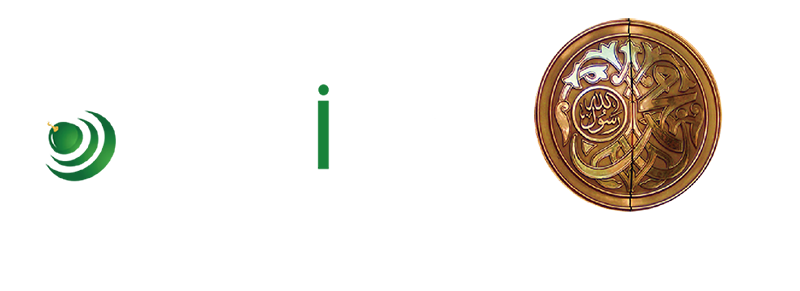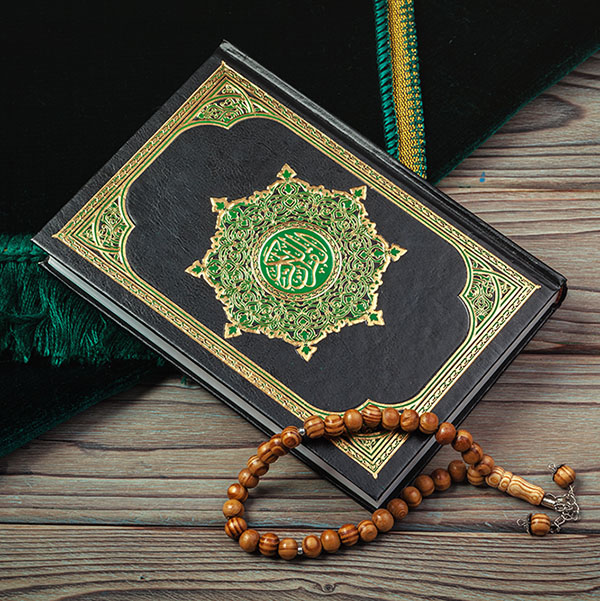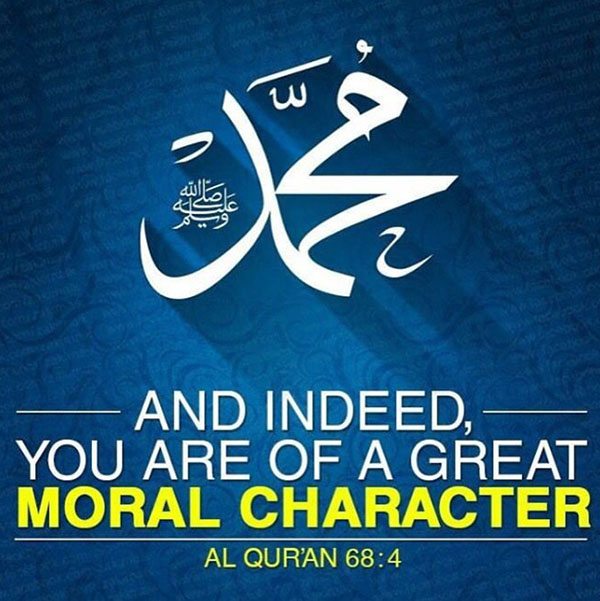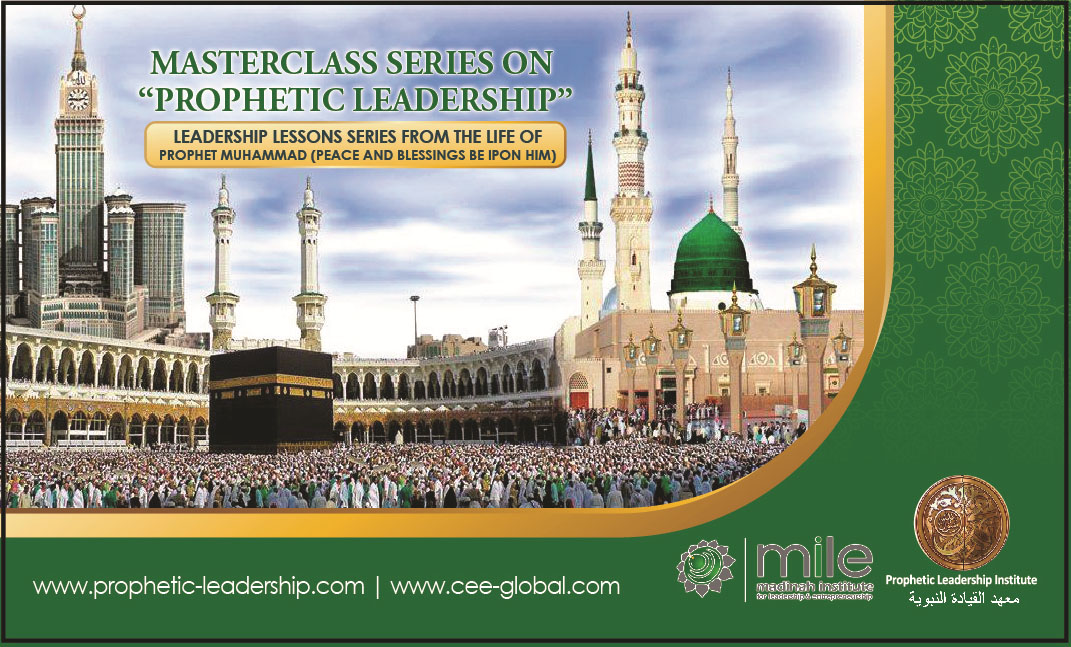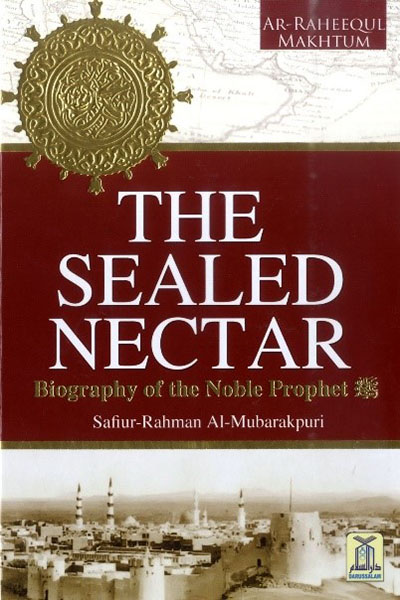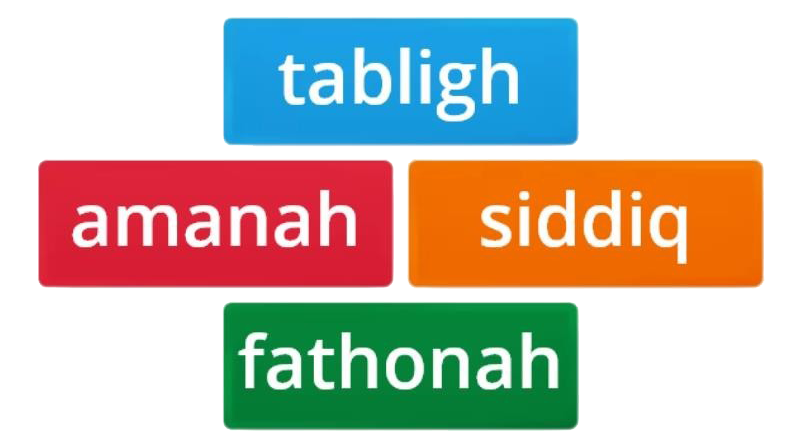SAMPLE MODULE
Module 1 on Introduction:
The basis of this program on Prophetic Leadership is the Holy Quran and the Sacred Sunnah.
Allah the Exalted says:
لَّقَدْ كَانَ لَكُمْ فِى رَسُولِ ٱللَّهِ أُسْوَةٌ حَسَنَةٌۭ لِّمَن كَانَ يَرْجُوا۟ ٱللَّهَ وَٱلْيَوْمَ ٱلْءَاخِرَ وَذَكَرَ ٱللَّهَ كَثِيرًۭا
Indeed, in the Messenger of Allah (Muhammad (peace and blessings of Allah be upon him)) you have a good example to follow for him who hopes in (the Meeting with) Allah and the Last Day and remembers Allah much.
Reference: Surah Al-Ahzab Verse 21 https://quran.com/33/21
The Definition of Sunnah according to the Scholars of Hadeeth:
كل ما أثر عن النبي ﷺ من قول، أو فعل، أو تقرير، أو صفة خَلقية أو خُلقية، أو سيرة سواء أكان ذلك قبل البعثة كتحنثه في غار حراء، أم بعدها.
Everything which is narrated concerning the Prophetﷺ (peace and blessings of Allah be upon him), whether it is his saying, action, or silent approval as well as his attributes concerning both characteristics and behavior, or his life story, before his Prophethood and after it (whole life).
For example, the actual title of Sahih al-Bukhari:
“الجامع المسند الصحيح المختصر من أُمور رسول الله و سننه وأيامه”
- The Compilation of concise authentic authorized descriptions of the Messenger of Allah, his traditions, and his life story.
- Hence, the core values of this “Prophetic Leadership” are derived from the Holy Quran, the Sacred Sunnah, and the biography of our beloved Prophet Muhammadﷺ (peace and blessings of Allah be upon him) based solely on reliable narrations.
- Yet, all the examples cited in this program, are about the Prophet’s personal decisions and initiatives not exactly or directly from Allah’s Divine Inspiration and Instruction (al-Wahyu) to him, which he used to discuss with the Companions in making crucial decisions.
Intrinsic Main Attributes of All Prophets:
The main attributes or traits which all Prophets must possess are:
– al-Ṣidqu (الصدق – Truthfulness),
– al-Amānah (الأمانة – Trustworthiness) and
– al-Fiṭanah/al-Faṭānah (الفَطانة/الفِطَنة – eloquence/shrewdness and foresight)
The above are the 3 attributes or traits that every Prophet (Nabiy) should possess according to most scholars.
As for al-Tablīgh (التبليغ – conveyance), it is regarded as the 4th trait that is specifically for a Rasūl (Messenger) to have, according to most of the scholars of ‘Aqā’id (Matters of Belief).
However, the basis for this is much related to their definition or classification of a Nabi and that of a Rasul and the difference between these two, which is a matter of dispute among scholars.
In conclusion, according to most scholars, almost consensus, all Prophets and Messengers should bear these 4 qualities as their most essential attributes to fulfill their role as Allah’s Apostles and convey Allah’s message. There is no clear explicit ‘daleel’ or textual proof for the specification of these traits and some scholars refrained from specifying these 4 qualities they mentioned among others, sanity, piety and righteousness, clarity in speech, good-looking and no physical imperfection, and all other qualities mentioned in the Qur’an and the Sunnah.
Supplementary Texts:
Sattar Bawany.
Leadership in Disruptive Times: Negotiating the New Balance. Business Expert Press (BEP) Inc. New York, NY, 2023
Sattar Bawany Leadership in Disruptive Times. Business Expert Press (BEP) Inc. New York, NY, 2020
Sattar Bawany. Transforming the Next Generation Leaders: Developing Future Leaders for a Disruptive, Digital-Driven Era of the Fourth Industrial Revolution (Industry 4.0). Business Expert Press (BEP) Inc. New York, NY, 2019
John Adair. The Leadership of Muhammad. Kogan Page, 2010. 148 pp ISBN 9780749460761
Abu al-Fiḍā ‘Imād Ad-Din Ismā‘īl ibn ‘Umar ibn Kathīr al-Qurashī Al-Damishqī (701-774/1302-1373). The Life of the Prophet Muhammad: Al-Sîrah alNabawiyya. Translated by Trevor Le Gassick. Reviewed by Ahmad Fareed and Muneer Fareed. Reading, UK: Garnet Publishing Limited, 1998-1999. 4 vols. 1960 pp.
Abū Ghuddah, ʻAbd al-Fattāḥ. Prophet Muhammad the Teacher and His Teaching Methodologies. Karachi: Zam Zam Publishers, 2003
Muhammad Ibn Ishâq, (d. 151/768). Ibn Ishaq’s The Life of Muhammad. Translated by Alfred Guillaume. London: Oxford University Press, 1955. Reprinted Karachi, 1967, 1978. 815 pp.
Muhammad Sa‘id Ramadan al-Buti, Jurisprudence in Muhammad’s Biography: Scientific and Systematic Studies of Lessons, Principles, and Constitution. Translated and abridged by Ali Rustum. 1st ed. Damascus: Dar al-Ma’arifah, 1988. 165 pp.
Muhammad al-Ghazali (1335-1416/1917-1996). Fiqh-us-Seerah: Understanding the Life of Prophet Muhammad. 2nd ed. Saudi Arabia: International Islamic Publishing House (IIPH). 514 pp.
Conclusion: Supplication (Dua) on Seeking Knowledge
In Surah Al-Baqarah, verse no 32, Allah says in the Quran,
They said,
“Exalted are You; we have no knowledge except what You have taught us. Indeed, it is You who is the Knowing, the Wise.”
Reference: Saheeh International, Surah Al-Baqarah (2:32 https://quran.com/2/32
‘O Allah, I seek refuge in you from the kind of knowledge which does not give benefit, from the heart in which there is no fear, from the soul which does not become satisfied and Dua which is not accepted.’ Aamiin Aamiin Aamiin Ya Rabbal Al-Aamiin.


